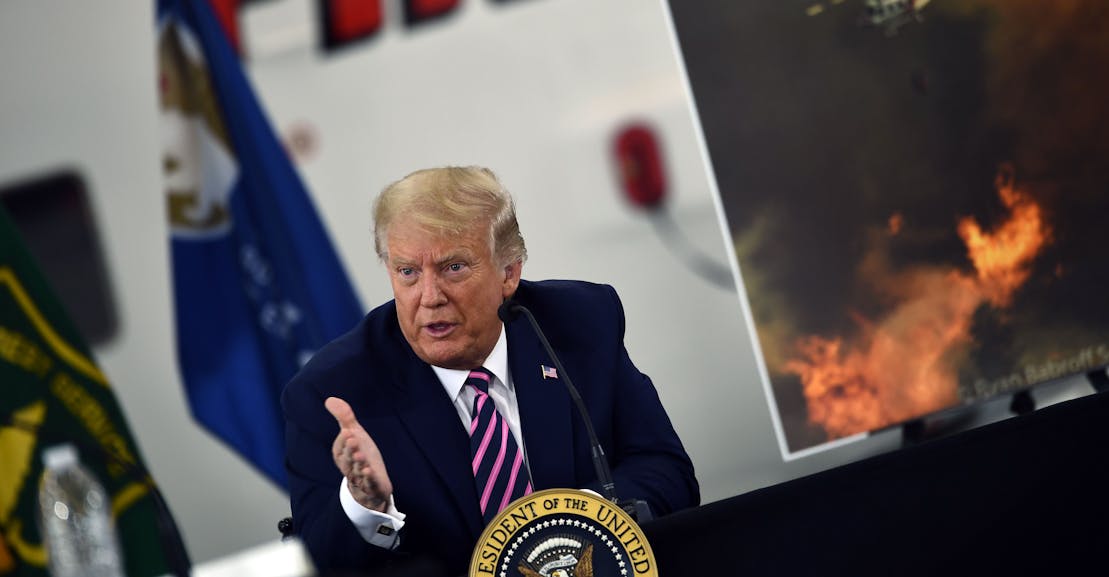The Republican Party this week is looking like a house divided on climate change: Specifically, it seems split between business interests who want at least the veneer of corporate responsibility and ideologues who think global warming is a conspiracy to make white men feel guilty.
Visiting a burning California on Monday, Donald Trump suggested that the planet will “start getting cooler,” doubling down on a brand of old-school climate denial that he’d recently seemed to be pivoting away from, given that he banned oil drilling off the coast of Florida just a few days earlier. News broke earlier this week that the Trump administration has appointed the prominent climate skeptic David Legates to a senior post at the National Oceanic and Atmospheric Administration. In the broader conservative media scene, Tucker Carlson and Rush Limbaugh have been railing against “environmentalist wackos,” who “want to convince you that your lifestyle choices are the reason why all these fires are firing up out on the Left Coast.” The comments came amid the most active hurricane season since 2005, and after the hottest summer on record in the Northern Hemisphere. QAnon conspiracy theorists, whose crackpot views have gained traction in the GOP recently, with positive shout-outs from Trump and other prominent Republicans, have blamed West Coast blazes on antifa, with “Q” having apparently suggested (falsely) that wildfires were the result of “highly coordinated … domestic terrorism.”
Meanwhile, on Wednesday morning, the Business Roundtable—a big-spending and typically conservative-leaning trade association—announced its support for Congress to pass some kind of “market-based mechanism” to handle carbon emissions, though it didn’t specify what kind; generally, market-based mechanisms refers to either a carbon tax or a carbon trading system like cap-and-trade. It also got behind a goal of “reducing net U.S. GHG emissions by at least 80 percent from 2005 levels by 2050.”
At first glance, then, it seems there’s growing daylight between the business elements of the Republican Party and its more freewheeling base. But the gap between corporate conservatives and conspiracy theorists isn’t as big as the former might like you to believe. Among the Roundtable’s members are the heads of companies (from ExxonMobil’s Darren Woods to Chevron’s Mike Wirth) that have spent years funneling money to climate-denier groups that crafted the lines Trump’s been spouting about the wildfires this week. Whatever their lobbying arms suggest about most oil majors’ token interest in renewables, these companies’ core business model is still actively fueling the problem. Some of the biggest polluters represented at the Roundtable—including ExxonMobil—have nominally backed the idea of putting some kind of price on carbon, maybe, at some point, for years. With the real possibility of a Biden administration on the horizon, the Business Roundtable’s announcement should be understood as a well-publicized hedging of bets.
It isn’t the first time corporate polluters have done this. ConocoPhillips, for instance—whose CEO Ryan Lance sits on the Business Roundtable—was an early member of the U.S. Climate Action Partnership when it launched in 2007 as a coalition between big Beltway green groups and big business. Amid growing public concern about the issue and a tremendously unpopular Republican president, a Democratic administration and some kind of national climate package looked increasingly likely as Election Day 2008 neared.
